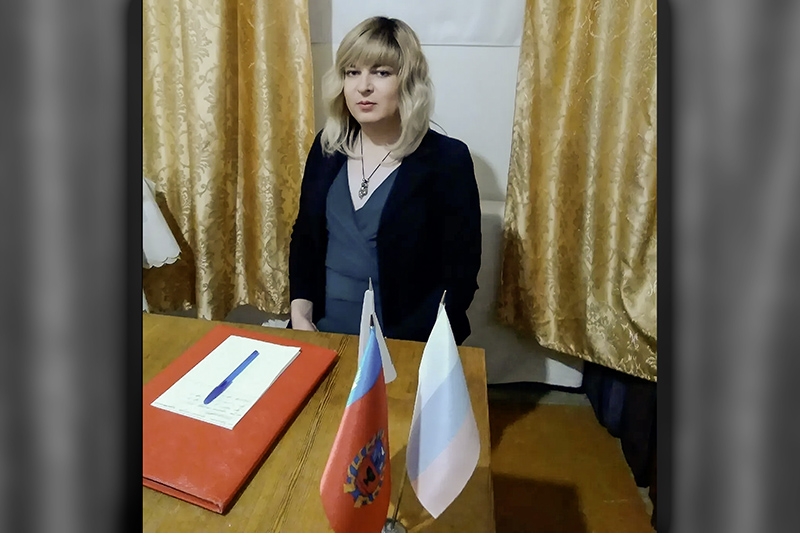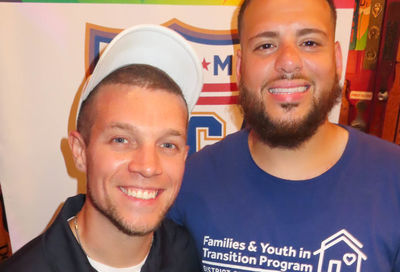Human rights court finds Russia’s anti-gay “propaganda” law violated LGBTQ groups’ rights
Court rules that refusal to register groups infringed upon their right to freedom of association

The European Court of Human Rights has ordered the Russian government to pay approximately $41,000 in damages to three LGBTQ groups that it refused to allow to register as associations, citing the country’s anti-gay “propaganda” law.
The three nonprofits — the Rainbow House, the Movement for Marriage Equality, and the Sochi Pride House, which was formed to combat homophobia in sports ahead of the 2014 Winter Olympics — have spent the better part of the last decade trying to register their organizations.
But the Russian government rejected all three organizations’ requests, finding that they ran afoul of the country’s 2013 law banning “propaganda of nontraditional sexual relations,” which effectively prevents any advocacy for the rights of sexual minorities — and even the facially-neutral acknowledgement of the existence of LGBTQ people.
In dismissing the requests, the government found that “activities relating to propaganda of non-traditional sexual orientation may endanger the security of Russian society and the State,” as they can “destroy the moral values of society” and “undermine the sovereignty and territorial integrity of the Russian Federation by decreasing its population.”
All three organizations appealed the decision, but regional courts sided with the government, reports the New York Daily News..
In one of the cases, the Pervomayskiy District Court ruled that the refusal to register the Sochi Pride House had been “lawful and justified” because “the aims of combating homophobia and creating positive attitudes towards LGBT sportspeople are incompatible with basic morality as they may lead to increasing the number of citizens belonging to sexual minorities, thereby undermining the conceptions of good and evil, of sin and virtue established in society.”
Frustrated by regional courts, the LGBTQ organizations took their case to the European Court of Human Rights, arguing that Russia had violated their rights by discriminating against them based on sexual orientation.
The court found that Russia’s refusal to register the groups was based on the fact that they promoted LGBTQ rights. In doing so, Russia had violated the applicants’ right to freedom of association, and had effectively discriminated against them based on their sexual orientation.
Russia has previously claimed that the anti-gay “propaganda” law is needed to protect children from information promoting causes that run counter to “traditional family values,” based on the assumption that exposure to that information might influence people to identify as LGBTQ.
The law has been condemned by human rights organizations across the world, including the United Nation’s Committee on the Rights of the Child, the Organization for Security and Co-operation in Europe, Council of Europe, and even the European Court of Human Rights itself, for singling out a specific group for disparate or unequal treatment.
Human Rights Watch praised the court’s findings and reiterated its call for the “propaganda” law to be repealed.
“As it was debated and passed in 2013, the law contributed to an intensification of stigma, harassment, and violence against LGBT people in Russia,” Human Rights Watch wrote on its website. “The law has been used to shut down online information and mental health referral services for children, and to discourage support groups and mental health professionals from addressing LGBT issues with children. It has further entrenched antipathy toward LGBT people.
“The European court’s new judgement, which found Russia responsible for discrimination and violation of freedom of association, is a cautionary reminder to the Russian government that the baseless and vitriolic gay propaganda law should be repealed.”
Support Metro Weekly’s Journalism
These are challenging times for news organizations. And yet it’s crucial we stay active and provide vital resources and information to both our local readers and the world. So won’t you please take a moment and consider supporting Metro Weekly with a membership? For as little as $5 a month, you can help ensure Metro Weekly magazine and MetroWeekly.com remain free, viable resources as we provide the best, most diverse, culturally-resonant LGBTQ coverage in both the D.C. region and around the world. Memberships come with exclusive perks and discounts, your own personal digital delivery of each week’s magazine (and an archive), access to our Member's Lounge when it launches this fall, and exclusive members-only items like Metro Weekly Membership Mugs and Tote Bags! Check out all our membership levels here and please join us today!

























You must be logged in to post a comment.